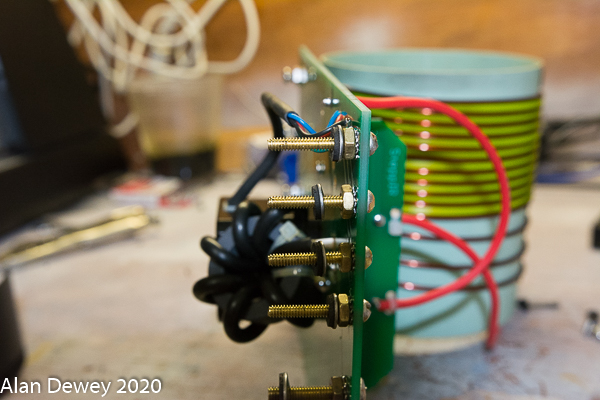Repairing a Steppir Biggir Vertical – part 4 – The Failure Point
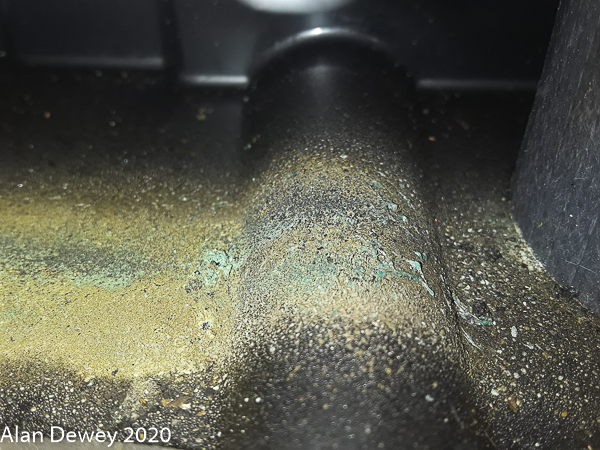
Update April 2021 I now believe that I know exactly what has caused these failures. It is NOT the manufacturer’s fault ! Jump to the ‘solution’ here https://blog.secondhandradio.com/2021/02/steppir-biggir-failed-again/ the first 6 articles in this series will remain here as an example of troubleshooting, analysis, and repair of this antenna.
This is part 4 of the adventure. You might want to start at part 1 here.
So in part 3 we figured out that the current problem was not with the 80m coil, but likely was in the Element Housing Unit (EHU.)
So that I could take the EHU inside into the air conditioning, the ‘mast’ is removed from the EHU, it just slides off. Slide it out a few inches and then with a tubing cutter, cut the white PVC pipe. Now the ‘mast’ is separated from the EHU, and the PVC pipe guide for the BeCu ribbon remains inside.
What do I see ? If you just glance inside, it does not look too scary.
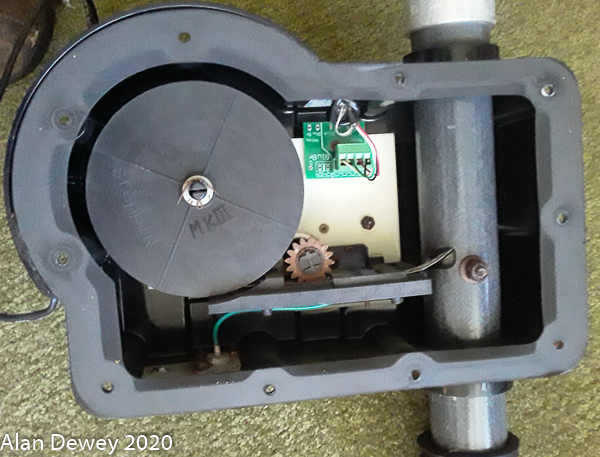
And let’s take a closer look.
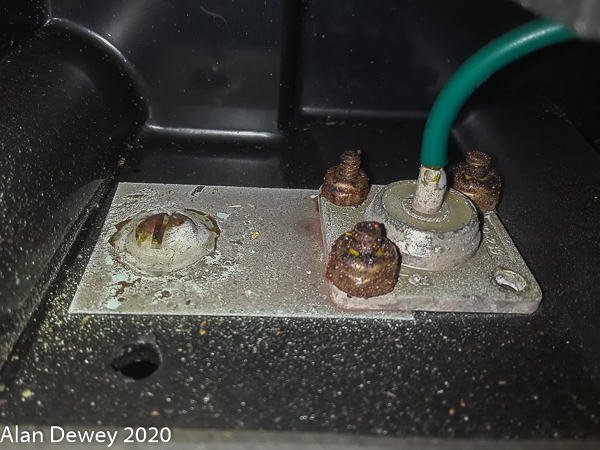
‘ground’ connection, but is not used when the 80m coil kit is installed.
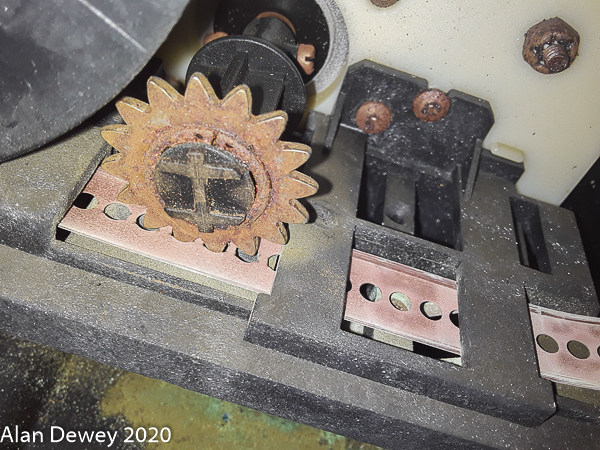
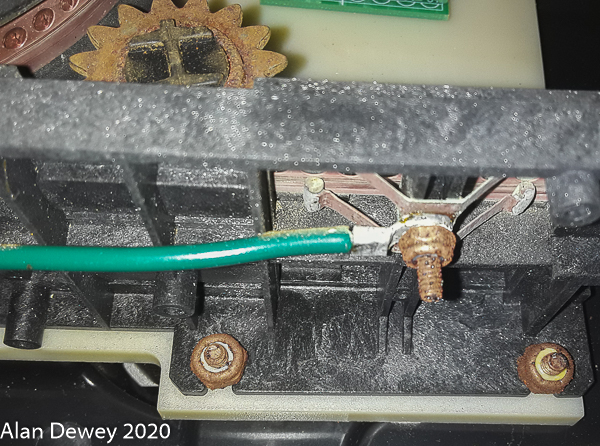
Would it be correct to call this the “brushes” ? There are 4 contact points.
I sent two or three photos to Steppir. Their reply was “looks like water got inside, it is not worth repairing.”
Well…. that means the challenge is on ! I will need to continue to disassemble, inspect, and analyze this. Then figure out what I need to do to repair it.
Keep in mind that I have not yet figured out how this damage started. Here is a close view of the BeCu ribbon entering the vertical mast. Note that the ribbon appears to be covered with dust. The fiberglass mast is gray, and inside that is a rod made of gray plastic.
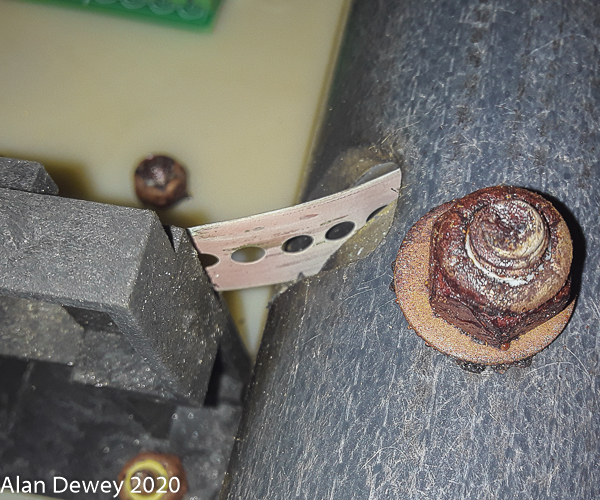
In this ‘top’ view of the ribbon you get a better idea how the ribbon enters the mast from the spool/motor/gear/contacts assembly. I see something interesting at the far edge of the hole where the ribbon enters the mast.
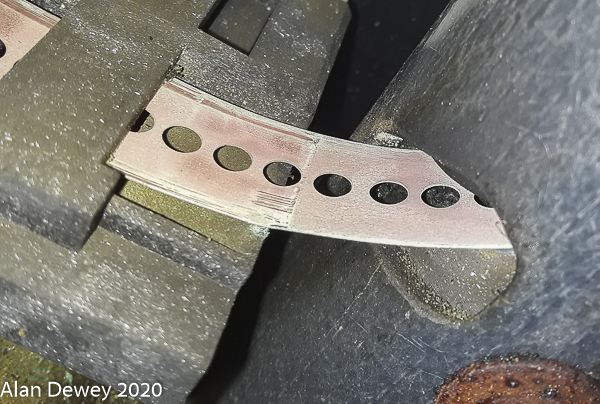
To remove the mast from the housing, first remove the 1/4 inch bolt and nut, remove the o-rings on the outside of the housing. Spray silicone spray onto the fiberglass mast, then with twisting motion, ‘slide’ it out of the housing. See the top photo for perspective. Here is a shot of my final repair that might help you understand.

Once the fiberglass mast assembly is out of the housing, you can push this assembly out of the fiberglass tube.
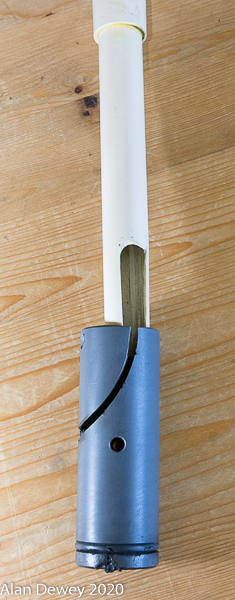
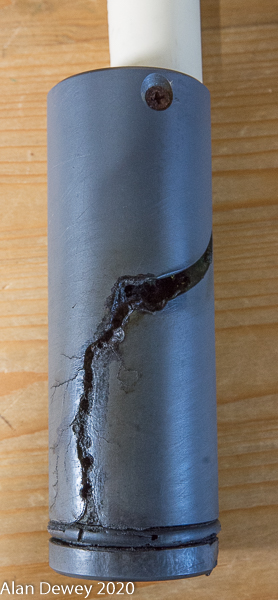
This gray plastic insert is bolted inside the fiberglass tube. The bolt also fixes the housing in place. The fiberglass tube extends 8 inches or so below the insert. The bottom of the insert rests upon the galvanized steel mounting pipe.
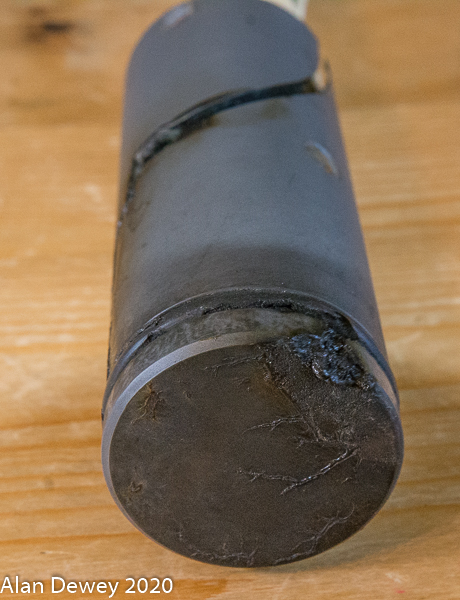
Here is a sketch I drew so that I could come up with some hypotheses for the cause of failure.
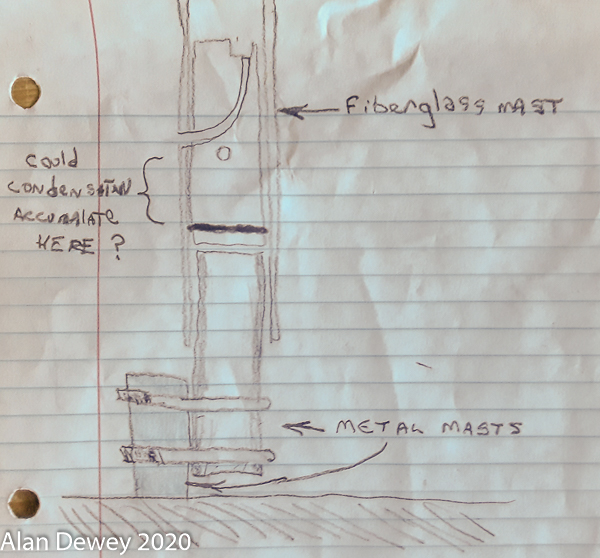
Could it have been condensation inside the vertical accumulated in the area shown? If enough water accumulated there, we would have a very short distance to experience voltage breakdown between the wet o-ring groove and the top of the metal mast. At least the water could have started the failure.
In part 5 of this adventure, we will see that the hypothesis for water accumulation is quite likely wrong.
If you are lost reading this article, perhaps you should start at part 1 “Reparing a Steppir Biggir vertical”

